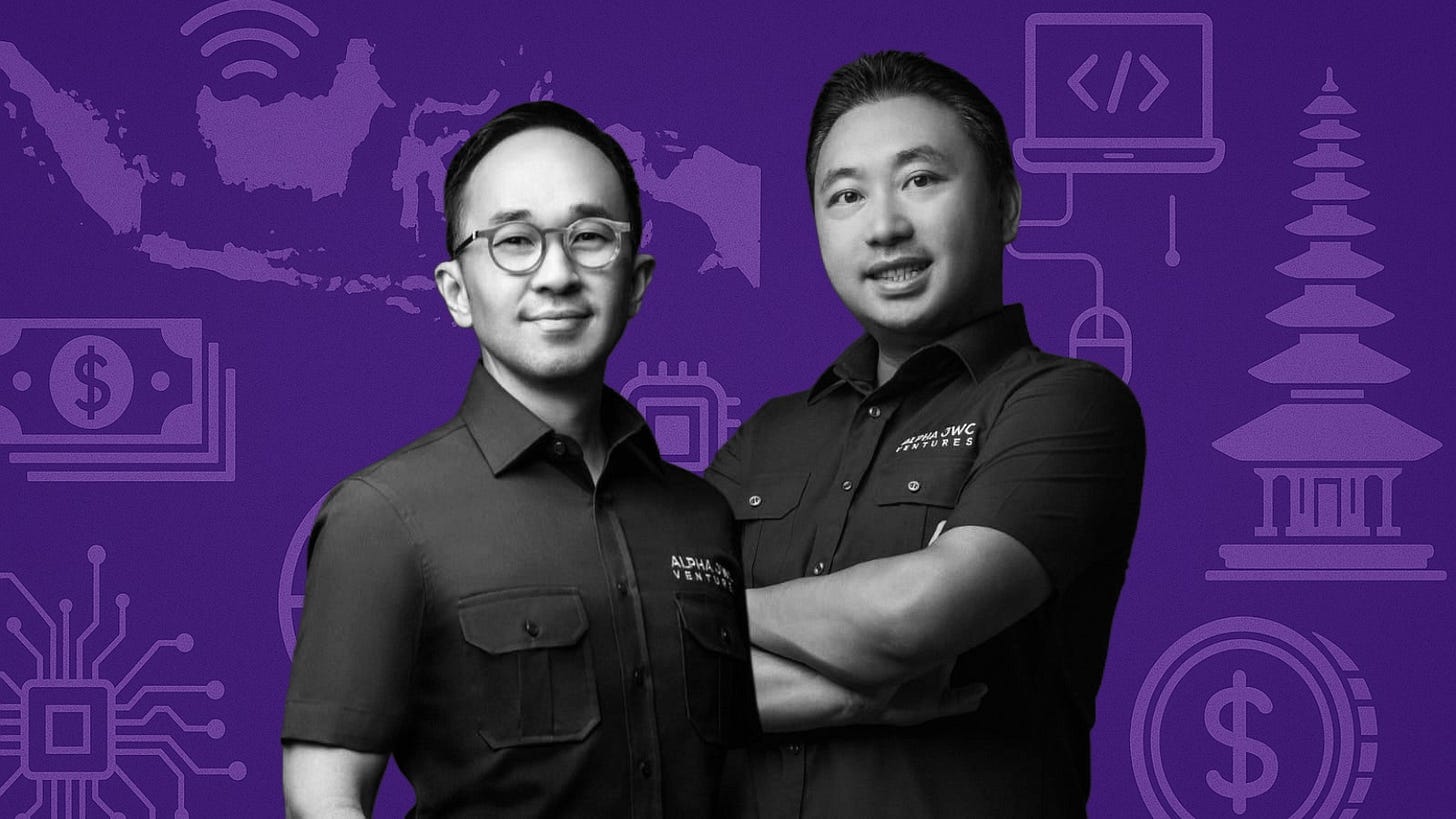Alpha JWC Ventures mulls over Indonesia’s “growing pains”
Tech investors will be digging their heels in until markets bottom out
It’s not been a walk in the park for Alpha JWC Ventures.
Shortly after the Indonesian venture capital firm closed its $450 million mega Southeast Asia Fund III in 2021, US public markets started to buckle. What unfolded across Southeast Asia was wave after wave – first of startup layoffs, then boardroom changes, and finally scandals, corporate thievery and fraud.
The pièces de résistance or icing on the cake, if you will, was the unravelling of eFishery – an Indonesian aquaculture unicorn found among many things to have deliberately inflated its revenues to institutional investors like Abu Dhabi’s G42 and Singapore’s Temasek Holdings.
Alpha JWC isn’t an investor in eFishery, but when you’re a VC firm which has explicitly branded itself to the world as Indonesia first, it still isn’t the best look to bring to institutional investors – at least for now.
“Have there been disappointments? Of course…I don’t want investors to lose money in Southeast Asia,” shared Alpha JWC’s managing partner, Jefrey Joe.
It’s the early, pubescent pains that Southeast Asia is currently in, and love it or hate it, investors like Joe have no choice but to course through it all. This region is still in a state of flux.
The breathtaking advances in AI coming out of ChatGPT, Perplexity, Grok and DeepSeek is placing a massive question mark on the future of software and startup business models. Trump’s tariffs this week are doing the same for Southeast Asia’s near-term growth prospects, as experts anticipate rising inflation and a geopolitical rebalancing towards China and other economic blocs.
There have been dramatic changes on the dealmaking front as well. Over the last 4 years, Southeast Asian startups swiftly grabbed their axes and slashed capex, which has in turn reduced overall capital needs.
Because of this, early-stage fundraising round sizes have declined. According to DealStreetAsia’s Data Vantage, the average Series A rounds fell from $14.1 million to $10.1 million between 2021 and 2023 before finally stabilising in 2024.
This led to a dearth in Series B deals as early-stage founders actively stretch every precious dollar they have in their coffers. Fundraising pace has slowed. Alpha’s recent “growth-stage” hires from the since-disbanded investor arm of Sea Group, Sea Capital, was meant to plug those “funding gaps”, Joe explained.
The challenge for Southeast Asia VCs today isn’t capital. Far from it, there’s plenty of dry powder lying around. It’s about putting that money to work to get the kind of returns previously promised to LPs.
Many investors have already cast their eyes overseas, raising funds and deploying in Japan, South Korea, Australia and even the US. Alpha JWC themselves have already done two deals outside of Southeast Asia, one of them being Australian healthtech firm Harrison AI.
Joe is acutely aware of the challenges ahead. There’s plenty to think about, especially when it comes to dealflow and deployment strategy.
“Can we deploy meaningful capital to Indonesia? The answer is yes. We have enough talent, but depending on which sectors,” said Joe.
“AI? Definitely not. Spacetech? We don’t have the ecosystem yet. Semiconductors, definitely no. But in the consumer and healthcare market, we do have enough talent. We are not strong in all sectors of the economy…(that’s why) we need to carefully select because of how Indonesia is developing,” he explained.
The flipside to all this is that Southeast Asian founders today are focused on exits and profitability way earlier in the journey than before. The companies formed from 2021 onwards run much tighter ships, Joe observed.
Some of these firms have achieved profitability by raising just $10-20 million, compared to the hundreds of millions or even over $1 billion during the era of Gojek and Grab. “Many of these will be in good shape for a meaningful exit once they hit the $200-500 million valuation mark,” he said.
The Indonesian VC currently has 4 unicorns in its portfolio — Kopi Kenangan, Kredivo, Carro and Ajaib. All four of them will likely be exploring IPO exits from next year onwards.
But there’s some way to go before meaningful exits become mainstream in Southeast Asia. Local IPO liquidity needs to be fixed and M&A appetite has to improve. For those who can’t wait around long enough, secondary or pre-IPO exits are probably the next best bet.
Venture capitalists like Jefrey Joe will be digging deep in their heels until then.
“We are growing up and these learning experiences help us do that…(Of course) there are still a lot of things that we can do better in, but we are invested in Southeast Asia, and we are here to stay,” he said.




